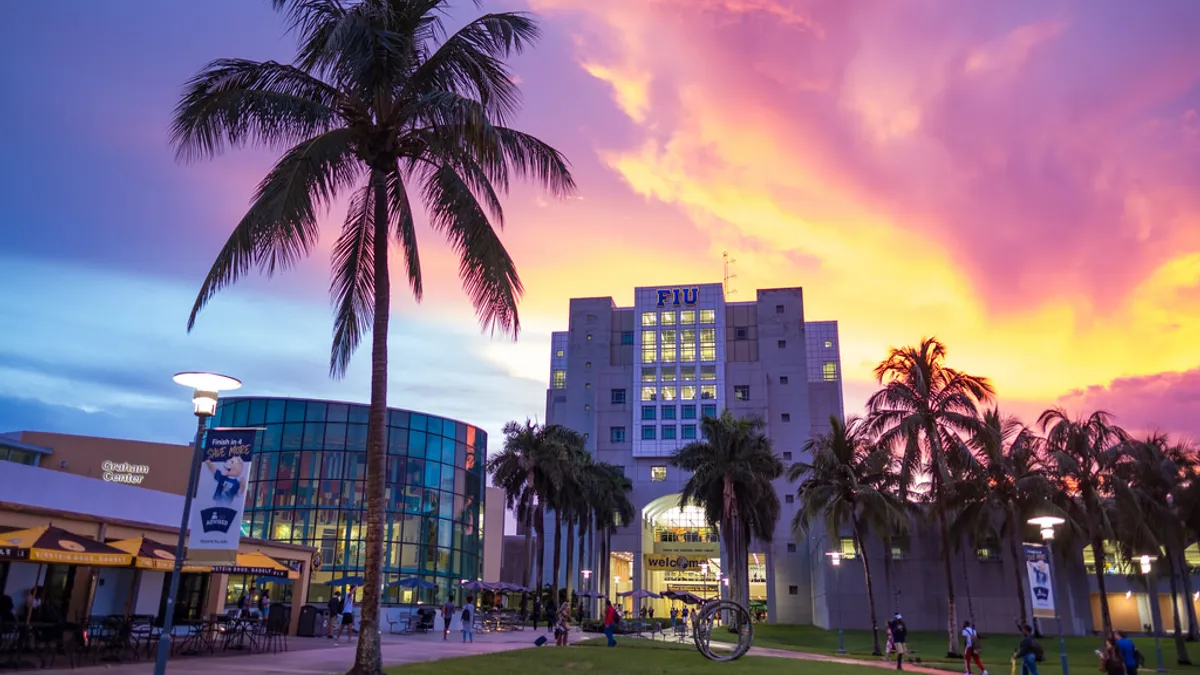Dive Brief:
- The number of Hispanic-serving institutions grew to 571 in the 2021-22 academic year, according to new data from Excelencia in Education, an advocacy group for Latino students.
- This represents a rebound from 2020-21, when the number of HSIs shrank for the first time in 20 years due to enrollment declines and other pandemic-induced stressors, the organization said.
- Excelencia in Education said HSIs represent about 20% of all U.S. colleges. And in all, HSIs enrolled about 1.37 million Latino full-time equivalent undergraduate students in 2021-22.
Dive Insight:
The federal government defines an HSI as an accredited, public or private nonprofit institution with an undergraduate full-time equivalent enrollment of at least 25% Hispanic students.
Advocates say these institutions are key in helping serve a marginalized population. In fact, they enroll 62% of Latino undergraduates, according to Excelencia in Education.
The number of HSIs fluctuate for two main reasons — Latino undergraduate enrollment rising or dropping below the 25% threshold, and colleges merging or closing, the organization said.
In the 2020-21 academic year, it found 559 HSIs, down from 569 in 2019-20.
Excelencia in Education also developed its own designation called “Emerging Hispanic-Serving Institutions,” which have 15% to 24.9% Hispanic undergraduate enrollment but do not yet meet the federal definition of an HSI. The group identified 401 such colleges in 2021-22.






